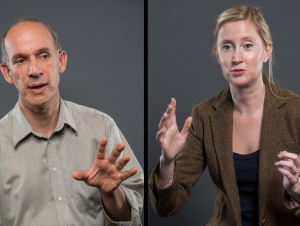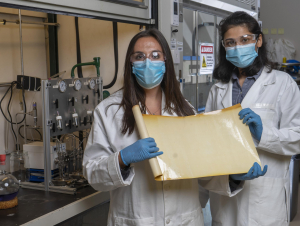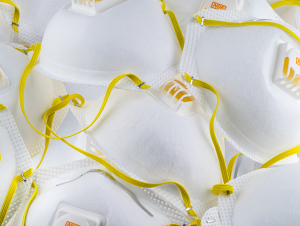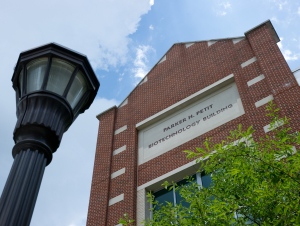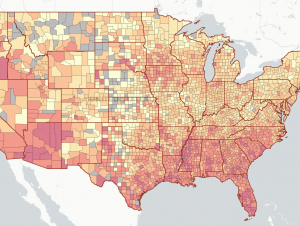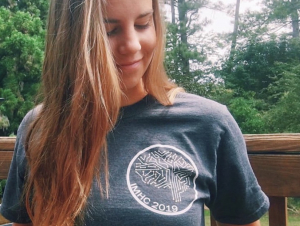To request a media interview, please reach out to experts using the faculty directories for each of our six schools, or contact Jess Hunt-Ralston, College of Sciences communications director. A list of faculty experts is also available to journalists upon request.
News Center
Experts In The News
Researchers at the Georgia Institute of Technology and India's National Center for Biological Sciences have found that yeast clusters, when grown beyond a certain size, spontaneously generate fluid flows powerful enough to ferry nutrients deep into their interior.
In the study, "Metabolically driven flows enable exponential growth in macroscopic multicellular yeast," published in Science Advances, the research team — which included Georgia Tech Ph.D. scholar Emma Bingham, Research Scientist G. Ozan Bozdag, Associate Professor William C. Ratcliff, and Associate Professor Peter Yunker — used experimental evolution to determine whether non-genetic physical processes can enable nutrient transport in multicellular yeast lacking evolved transport adaptations.
A similar story also appeared at The Hindu.
Phys.org June 24, 2025Imagine your memories, way of thinking, and who you are being saved into a computer system. Not as a backup, but as a fully conscious version of yourself. Without a body, but with a mind. Sounds like science fiction? That’s exactly what mind uploading to a computer is. It’s an attempt to create a digital existence that can last forever.
In a virtual world where physics operates on different principles, a digital consciousness could eat virtual food, fly, travel to planets, or pass through walls.
Limitations? Only those imposed by technology and the current state of knowledge. Associate Professor Dobromir Rahnev from the Georgia Institute of Technology’s School of Psychology does not rule out this possibility.
“Theoretically, mind uploading is possible. However, we are currently very far from this goal,” he writes in The Conversation.
Holistic News June 22, 2025
